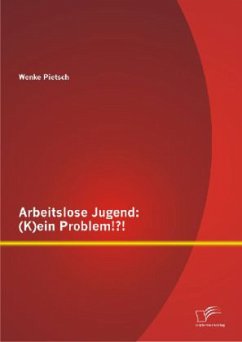
Transitions from Education to Work in Europe
The Integration of Youth Into Eu Labour Markets
Herausgegeben von Müller, Walter; Gangl, Markus
Versandkostenfrei!
Versandfertig in 1-2 Wochen
266,99 €
inkl. MwSt.

PAYBACK Punkte
133 °P sammeln!
European unification represents major challenges to national institutional frameworks as well as significant pressures for institutional convergence. So far, labour markets have actually seen relatively little convergence, and national institutions have remained highly distinct. Against this background, the book provides an encompassing comparative analysis of school-to-work transitions in EU member states. It shows how differences in both European education and training systems, aswell as labour market institutions, generated significant variation in the experiences of young people entering E...
European unification represents major challenges to national institutional frameworks as well as significant pressures for institutional convergence. So far, labour markets have actually seen relatively little convergence, and national institutions have remained highly distinct. Against this background, the book provides an encompassing comparative analysis of school-to-work transitions in EU member states. It shows how differences in both European education and training systems, as
well as labour market institutions, generated significant variation in the experiences of young people entering European labour markets during the 1990s.
This book compiles an integrated series of comparative empirical analyses of education-to-work transitions across the EU by drawing on the European Labour Force Surveys. Individual chapters describe the educational background of young people entering the labour market, address the scope of educational expansion in recent decades, and chart basic structures of transition processes in European labour markets. Chapters not only examine the role of education for successful labour market
integration, but also the impact of macroeconomic, structural, and institutional factors on young people's chances of avoiding unemployment and attaining employment in occupations appropriate to their education and training. From these analyses it becomes apparent that the structure of education and training
systems is the key institutional factor behind successful youth labour market integration. At the level of intermediate skills, dual systems of training have retained their advantages in terms of reduced youth unemployment. High levels of education still constitute a key asset, for, despite significant educational expansion in recent decades, devaluation trends have been limited. As youth labour markets are found to be particularly responsive to macroeconomic conditions, however, macroeconomic
stability turns out to be an equally important predicament to successful youth labour market integration, in particular among those with low levels of education.
well as labour market institutions, generated significant variation in the experiences of young people entering European labour markets during the 1990s.
This book compiles an integrated series of comparative empirical analyses of education-to-work transitions across the EU by drawing on the European Labour Force Surveys. Individual chapters describe the educational background of young people entering the labour market, address the scope of educational expansion in recent decades, and chart basic structures of transition processes in European labour markets. Chapters not only examine the role of education for successful labour market
integration, but also the impact of macroeconomic, structural, and institutional factors on young people's chances of avoiding unemployment and attaining employment in occupations appropriate to their education and training. From these analyses it becomes apparent that the structure of education and training
systems is the key institutional factor behind successful youth labour market integration. At the level of intermediate skills, dual systems of training have retained their advantages in terms of reduced youth unemployment. High levels of education still constitute a key asset, for, despite significant educational expansion in recent decades, devaluation trends have been limited. As youth labour markets are found to be particularly responsive to macroeconomic conditions, however, macroeconomic
stability turns out to be an equally important predicament to successful youth labour market integration, in particular among those with low levels of education.














